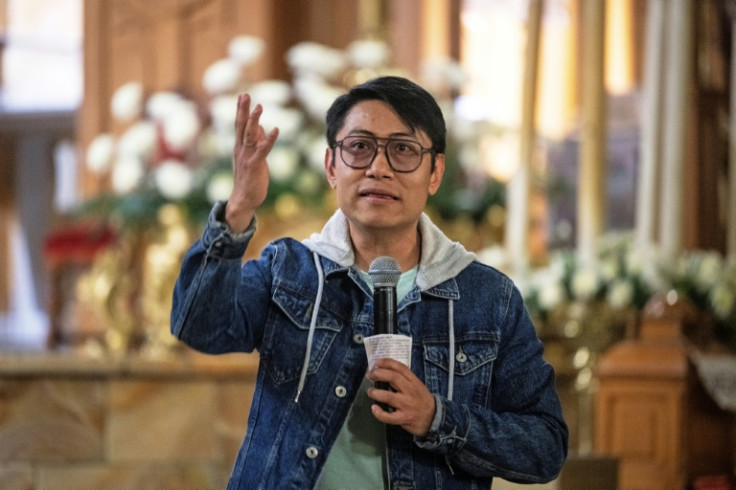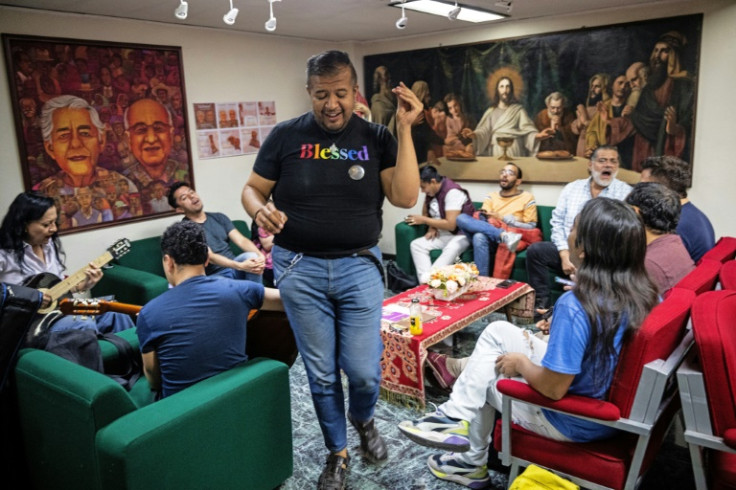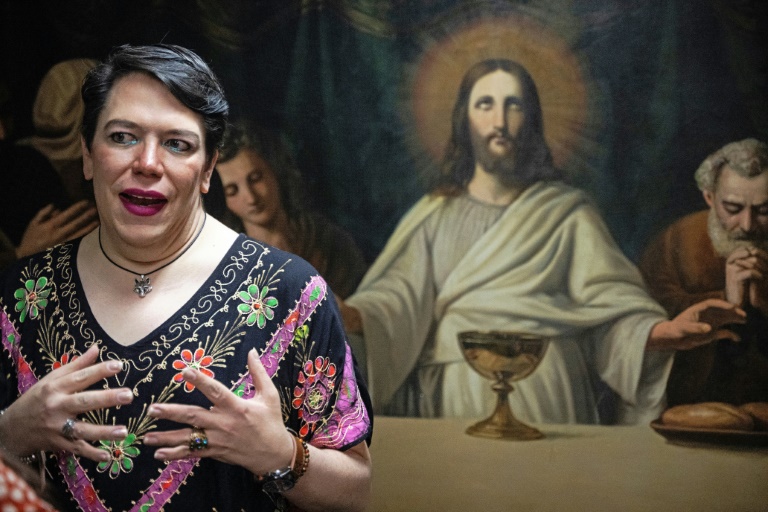As a teenager, Victor Rodriguez felt excluded from his religion for being gay, but now he’s welcome at inclusive masses in a Mexico City church, where same-sex couples have also begun receiving blessings with the pope’s endorsement.
Speaking during the sermon, the 39-year-old said that when he was younger he was pressured to leave the seminary because of his homosexuality.
Accompanied by his husband, he asked the congregation to pray for people who reject them: “For the priest who took me out of the church for being the way I am.”
The inclusive masses at the majestic Sagrada Familia in Mexico City’s Roma district have taken on added significance following the Catholic Church’s approval in December of blessings for same-sex couples.
The following month, the first two such blessings were given in the Sagrada Familia after the inclusive mass.
“It was a miracle from God. We’re very Catholic. I never thought that a church would accept me with my partner, my sexuality,” said Arturo Manjarrez, accompanied by his husband Carlos Sanchez.
Mexico City approved same-sex marriage in 2010, becoming a pioneer in Latin America.
Twelve years later the Supreme Court legalized it throughout the Catholic-majority country.
Jesuit priest Gonzalo Rosas has worked with the LGBTQ community for more than a decade, officiating a monthly inclusive service at the Sagrada Familia that is now replicated in three churches in the capital.
When he arrived at the church in 2013, he “found a lot of sexual diversity,” said the 68-year-old priest, who uses inclusive language in his sermons.
“I looked for organizations, young people to talk to. They told me ‘father, the church excludes us’ … I invited them to see what path we could take together and the idea of a mass arose,” he said.
There was already a choir made up of young members of the LGBTQ community who had left the seminary and used to meet to pray in a house, said choir director Eduardo Andrade.
After the arrival of Father Gonzalo, the choir felt able to be more open about its members’ sexual orientation, said Andrade, an activist with Colectivo Teresa, a theological organization aimed at LGBTQ people.
Wearing a T-shirt emblazoned with the word “blessed” in rainbow colors — a symbol of LGBTQ pride — he described the inclusive mass as a “unique” experience in Latin America because of their frequency and openness.
Some parishioners, however, were uncomfortable and distanced themselves, said Andrade, a member of the Global Network of Rainbow Catholics, which works for the inclusion of the LGBTQ community in the Roman Catholic Church.
Father Gonzalo recalled that his superiors authorized inclusive events on the condition that they did not become politicized.
The choir’s members include Regina, a teacher who identifies as non-binary and remembers attending the mass for the first time dressed more like a straight person.
“They said to me, ‘where’s the outfit, where’s the makeup?’ And when I entered, I saw that it was totally different. I reconciled with the Church,” Regina said, wearing makeup and holding a fan.
But change is now in the air.
In December, the Vatican’s Dicastery for the Doctrine of the Faith, its department for Roman Catholic doctrine, said priests could bless “irregular” and same-sex couples under certain circumstances.
Priests can only perform blessings for same-sex couples, divorcees, or unmarried couples in “non-ritualized” contexts, and never in relation to weddings or civil unions.
A third of Mexico’s 32 states accept adoption by same-sex couples, and Father Gonzalo says he has baptized a couple of babies with two mothers.
Andrade acknowledged that for some members of the LGBTQ community the blessings authorized by Pope Francis did not go far enough.
But “it’s better to take a small but safe step,” he said.
In a neighboring district, Vincent Schwahn, a retired Anglican priest from the United States whose husband is Mexican, welcomed one step “in 2,000 years of homophobia.”
But he criticized the restrictions on same-sex blessings, which he described as “like blessing a car,” and said that “all parishes must be inclusive.”
Although the majority of the attendees at the inclusive mass are members of the LGBTQ community or their friends and family, others were also participating for the first time.
“This is what we have to learn — we’re all human beings. We all have to respect each other,” said 77-year-old Irma Juarez.
AFP

AFP

AFP






